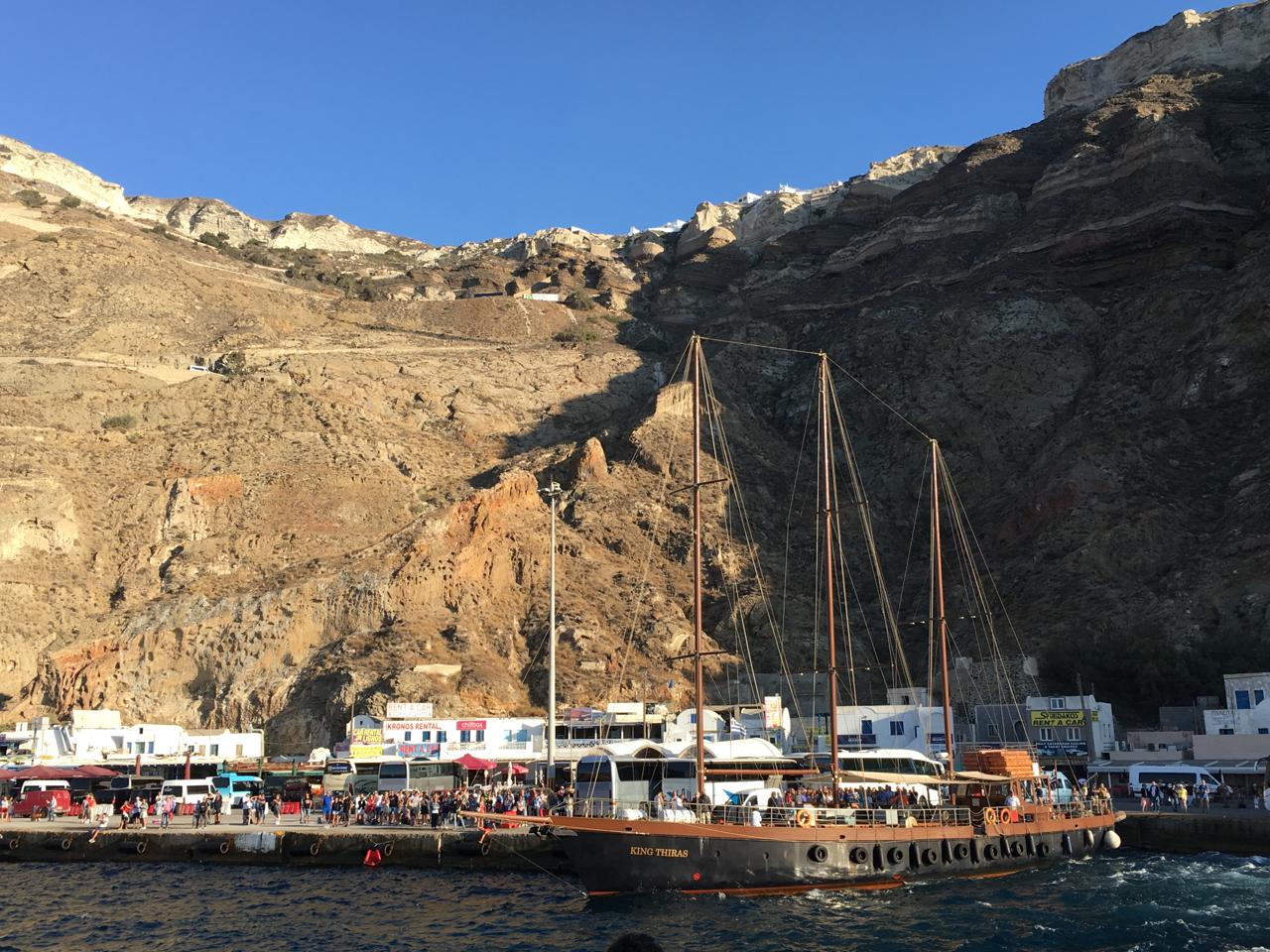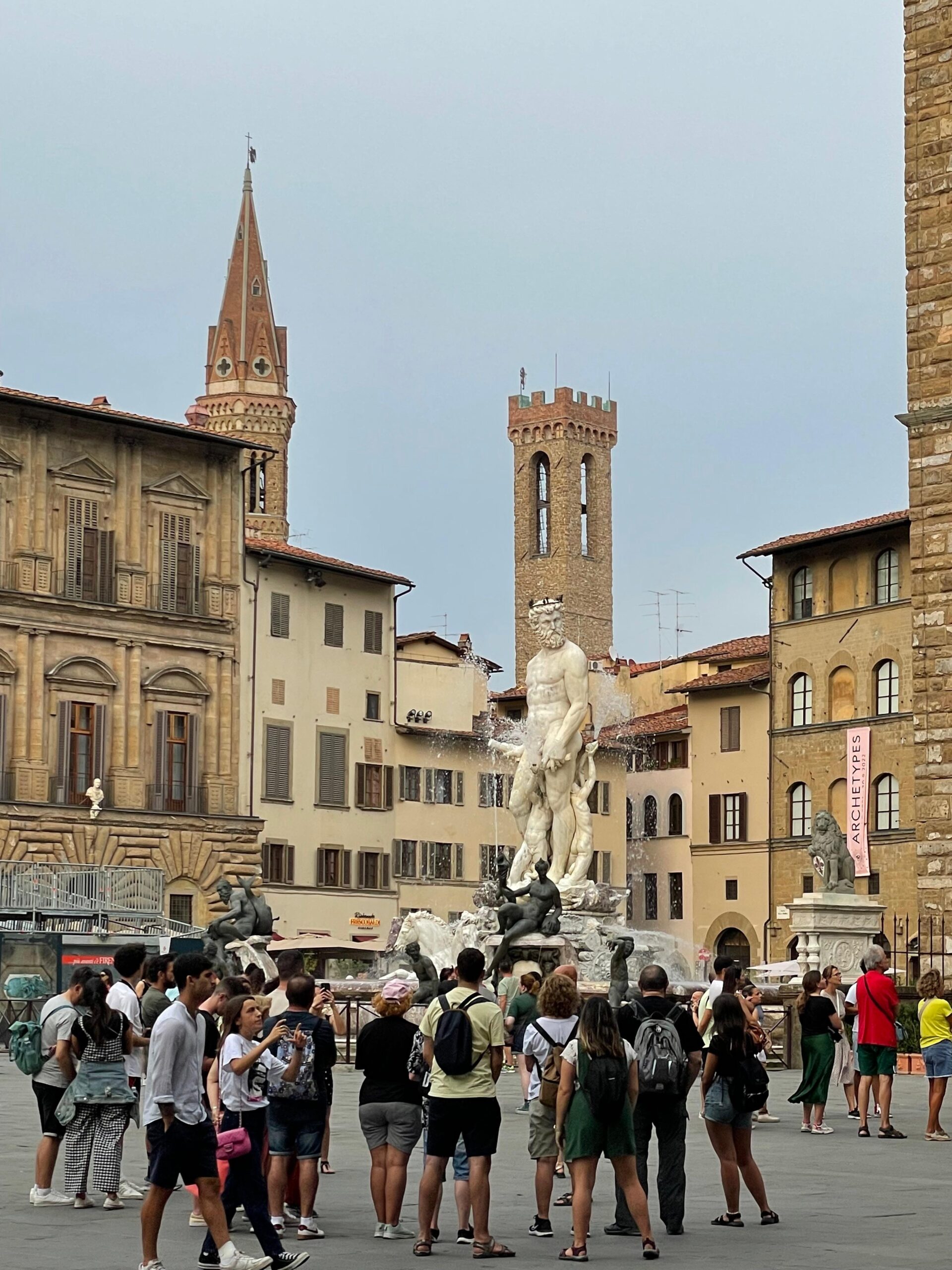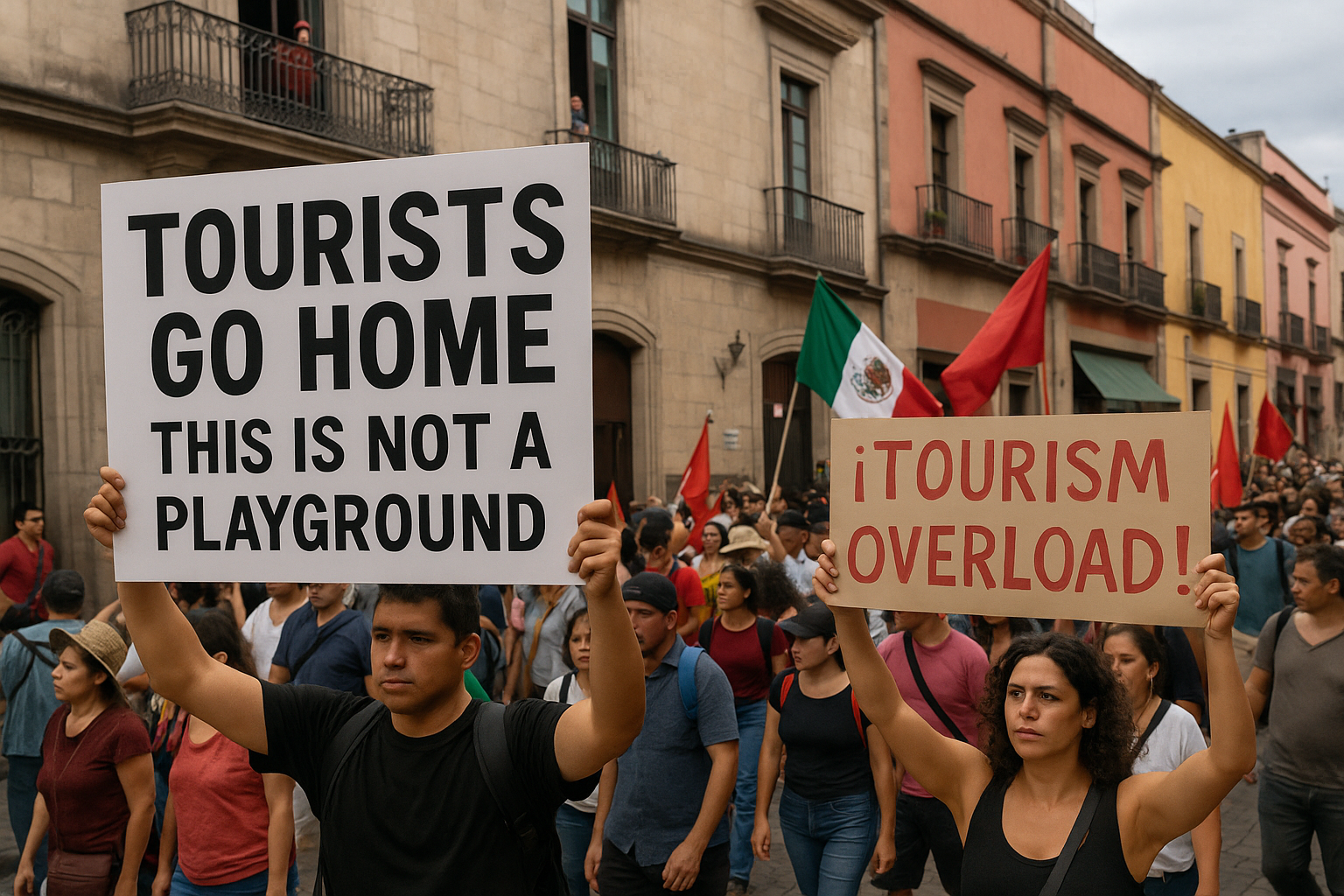Global Anti-Tourism Protests Grow as Mexico Joins European Hotspots in Backlash
A wave of global discontent is reshaping the future of travel. From Mexico to Southern Europe, mass protests are placing the tourism industry under scrutiny as local communities push back against overcrowding, gentrification, and environmental strain. Mexico now joins Spain, Italy, Portugal, Greece, France, and even Finland on the growing list of destinations where tourists are facing organized resistance.
Once hailed as economic lifelines, tourism hubs like Mexico City, Barcelona, Venice, and Lisbon are witnessing rising anger over the social and cultural costs of mass tourism. And the message is clear: without reform, tourism could become unwelcome in its most iconic destinations.
Mexico City: The New Epicenter of Anti-Tourism Protests
In a dramatic turn, Mexico City has emerged as the newest flashpoint of tourism-related unrest. Recently, hundreds of residents marched through popular districts like Condesa and Roma, brandishing signs reading “Tourists Go Home” and “This Is Not a Playground.” At the heart of the protests is frustration over rising housing costs, fueled by short-term rental platforms and the influx of digital nomads—particularly from the United States.
Tensions have been mounting since 2022, when Mexico City’s then-Mayor, now President Claudia Sheinbaum, signed a deal with Airbnb and UNESCO to promote tourism and remote work opportunities. While aimed at boosting the local economy, the deal has accelerated gentrification, leaving many long-term residents priced out of their neighborhoods.
Protesters blame remote workers and foreign investors for pushing up rents and hollowing out the city’s cultural fabric. Some demonstrations have turned aggressive, with businesses targeted in the most gentrified zones. For tourists, especially Americans, this marks a shift in perception—Mexico’s capital is no longer just a vibrant destination but also a city grappling with the side effects of global tourism.
Spain: Coordinated Protests Across Tourist Hotspots
Meanwhile, across the Atlantic, Spain remains at the center of the anti-tourism movement. From Barcelona to Palma de Mallorca, residents have taken to the streets wielding water guns in symbolic protest. Hotels have been blockaded, and graffiti warning tourists to leave have appeared throughout tourist-filled zones.
Activists are demanding limits on short-term rentals and stricter controls on new hotel developments. In the Canary Islands, protesters are increasingly vocal about environmental degradation and rising living costs due to excessive tourism.
Spain’s protests have evolved into a coordinated grassroots movement, with residents in Madrid, Valencia, and beyond joining forces under the shared goal of reining in mass tourism.
Italy’s Historic Cities Push Back
Italy’s most treasured cities—Venice, Florence, Naples, and Palermo—are also seeing tensions rise. In Venice, activists have successfully pushed for limits on cruise ship arrivals and visitor caps during peak seasons. Florence recently banned the use of tourist golf carts in historic zones to preserve the city’s integrity.
Residents across Italy argue that their cities are becoming unlivable, with public services stretched thin and daily life disrupted by tourism-driven noise, traffic, and soaring housing costs. From Rome to Genoa, the sentiment is growing: tourism must be managed or curbed.
Portugal and Greece: Quiet Resistance, Loud Demands
In Lisbon, mass protests have erupted over the past year as residents demand curbs on new tourism developments and Airbnb-style rentals. The once-affordable capital has become out of reach for locals, forcing many to relocate to the outskirts.
Greece, while not seeing large street protests, has implemented policy changes that reflect similar concerns. In Santoriniand Mykonos, the government is considering cruise ship limits and increased tourist taxes to safeguard delicate infrastructure and ecosystems.
Finland and Beyond: A Global Pattern Emerges
Even traditionally low-tourism destinations like Rovaniemi, Finland—the famed “home of Santa Claus”—have begun resisting overtourism. Local leaders are discussing seasonal visitor caps to protect resources during peak holiday seasons.
Elsewhere, Kyoto in Japan has enacted visitor behavior guidelines to curb disruption in temple areas. Amsterdam has gone further, launching ad campaigns actively discouraging certain types of tourists.
These examples underscore a growing global pattern: overtourism is no longer just a European or Latin American problem—it’s a global crisis in need of comprehensive reform.
The Root Causes: Why Locals Are Pushing Back
Across all affected destinations, the complaints are strikingly similar:
- Soaring rents and housing shortages caused by short-term rentals
- Cultural erosion in historically working-class neighborhoods
- Overburdened infrastructure, from crowded metros to overflowing trash bins
- Environmental degradation, especially in coastal and historic areas
- Government policies favoring economic gain over community protection
Residents argue that their quality of life has diminished as their cities transform into tourist playgrounds.
What It Means for the Travel Industry
These protests represent a pivotal challenge for the global travel industry. Airlines, tour operators, hotel chains, and booking platforms must now consider sustainability not as a trend, but as a necessity. Without local support, destinations risk their reputation, economy, and social fabric.
Key industry responses should include:
- Supporting visitor caps and tax reforms that benefit locals
- Promoting off-season travel
- Encouraging ethical tourism practices among travelers
- Partnering with communities to share tourism benefits equitably
Failure to adapt could result in reputational damage, reduced tourist demand, and increased government intervention.
A New Era for Global Travel
The rise of anti-tourism protests in cities like Mexico City, Barcelona, and Venice marks a turning point in the global travel narrative. Tourists and businesses alike must reconsider their roles in shaping the future of destinations.
For travelers, this means being more mindful, respectful, and informed. For the industry, it means adopting policies that prioritize people and planet over unchecked profits.
The future of travel lies not in how many people we can move—but in how well we can move them without erasing the places they come to experience.
For more travel news like this, keep reading Global Travel Wire



















